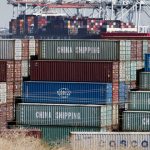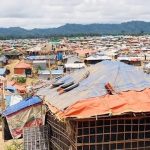The United States has recently implemented a significant increase in tariffs on Bangladeshi exports, particularly targeting the country’s textile industry—a critical sector that fuels Bangladesh’s economy. The tariff rate has been raised from 15% to 37%, sparking concerns about the future of Bangladesh’s $40 billion garment export industry.
The decision, announced by former U.S. President Donald Trump during a press conference at the White House Rose Garden, is part of a broader strategy imposing tariffs on goods from several countries. Bangladesh, being heavily reliant on textile exports, finds itself among the nations facing one of the highest tariff increases under this policy. For a developing nation, this poses serious challenges, especially for an economy that depends largely on U.S. trade for sustainability and growth.
The Government of Bangladesh is actively exploring measures to address the issue. Trade advisors suggest reducing the trade surplus with the United States as a way to lower tariffs. Sheikh Bashir Uddin, a trade advisor to Bangladesh’s interim government, emphasized the need to bridge the gap, stating, “We are actively searching for opportunities to mitigate the disparity and enhance trade relations.”
The textile industry, represented by administrators like Anwar Hossain, has proposed increasing the import of American cotton to create a more balanced trade relationship. However, establishing a reliable supply chain for U.S. cotton remains a challenge. Major U.S. retailers, including Walmart and Gap, source millions of dollars’ worth of garments from Bangladesh annually, and the tariff hike may prompt them to reconsider their procurement strategies.
Bangladesh is optimistic about resolving the issue through mutual trade discussions and collaboration with the U.S. government. Officials point out that the country has begun reevaluating tariffs on imported goods from the United States, with the National Board of Revenue identifying possible adjustments to restore equilibrium in trade relations.
Bangladesh’s Interim Trade Advisor Sheikh Bashir Uddin remarked that the decision reflects broader global trade disruption, saying, “This is no longer a bilateral issue—it’s turning into an economic tsunami on a global scale.” Despite the challenges, the government remains hopeful that collaborative efforts will pave the way for fairer tariff arrangements and strengthen trade ties with the United States.
The U.S. remains Bangladesh’s largest export destination, and both nations have been working to enhance trade and investment cooperation. As Bangladeshi officials continue to focus on diplomacy and trade alignment, the future of the country’s textile industry will depend heavily on its ability to navigate this economic hurdle.













+ There are no comments
Add yours